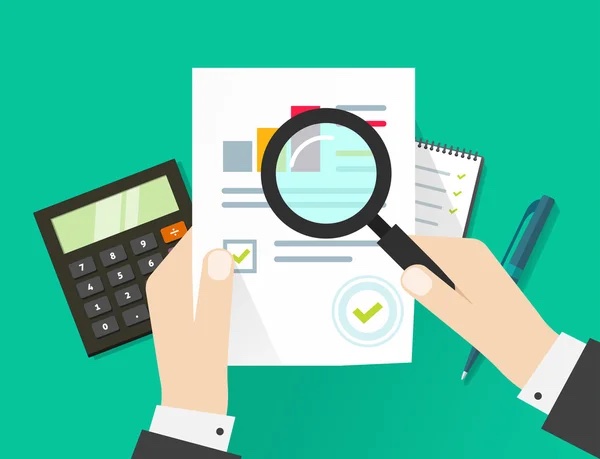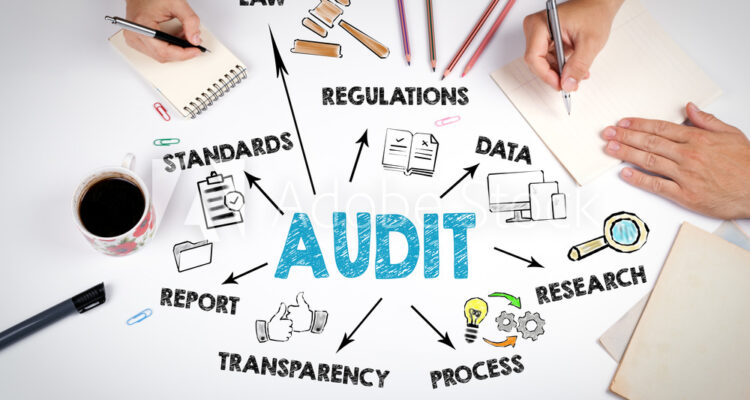Financial audits are a vital tool for ensuring the accuracy and compliance of an organization’s financial statements. But with so many different aspects of financial reporting to consider, what should you focus on during a financial audit?
SOX Auditing SOX auditing is one of the most important aspects of a financial audit. The Sarbanes-Oxley Act (SOX) was passed in 2002 in response to the accounting scandals at Enron and WorldCom. The act requires public companies to implement rigorous financial reporting controls, including independent audits of their financial statements.

SOX auditing aims to ensure the accuracy and completeness of financial statements and protect investors from accounting fraud. SOX auditing standards are rigorous and complex and require auditors to judge the financial reporting process harshly. To ensure you comply with SOX standards, you may want to look into SOX Internal Controls auditing with Pathlock.
Why Are Financial Audits Important?
Financial audits are essential because they ensure that an organization’s financial statements are accurate and free from material misstatement. Auditors also seek compliance with generally accepted accounting principles (GAAP) and other regulatory requirements. Financial audits help to ensure the fairness of financial reporting and the integrity of financial statements.

Audits can also help detect fraud and other irregularities. For example, auditors may uncover fraudulent financial statements that attempt to hide illegal activities or misappropriation of assets.
There are a few key things you should focus on during a financial audit.
1. Access Control
One of the most important aspects of a financial audit is reviewing an organization’s access control measures. This includes assessing who has access to the organization’s
financial data and whether they have the appropriate level of access. It’s also important to ensure that these measures are adequate for preventing unauthorized access to sensitive information.
This area ensures that only authorized personnel access the organization’s financial information. Physical and logical access controls, such as strong passwords, two-factor authentication, and segregation of duties, should be in place.
Your team should be able to provide you with a list of access controls that are already in place and help you identify any areas that may need improvement. You should also consider implementing additional measures to secure your data further. Software like SOX Internal Controls auditing with Pathlock can help you automate and streamline the access control process.
2. IT Security
Another critical area to focus on during a financial audit is IT security. This includes reviewing the organization’s procedures for protecting financial data from cyber attacks. It’s crucial to ensure that all financial data is encrypted and that only authorized personnel can access it. Additionally, it’s important to have procedures to detect and respond to potential security breaches.

Review the organization’s IT security policies and procedures to ensure they are adequate. Ensure that systems are appropriately configured and patched and that antivirus and antimalware software is up to date. Remember to consider implementing additional security measures like two-factor authentication and data encryption.
3. Data Backup
Data backup is a third key area during a financial audit. This includes assessing how financial data is backed up and whether it is being done effectively. It’s important to ensure that all financial information is backed up regularly and that there are multiple copies of it in case of a disaster. Additionally, it’s crucial to have a plan to recover lost or corrupted data.
Confirm that the organization is backing up its data regularly and that the backups are stored securely. The backups should be tested periodically to ensure they can be restored successfully. Ensure that the organization has a plan to recover lost or corrupted data.
4. Change Management
Change management is the final key area to focus on during a financial audit. This includes assessing how changes are made to the organization’s financial statements and whether these changes are properly documented. It’s important to ensure that all changes are tracked and that there is a clear paper trail for each shift. Additionally, it’s important to have procedures in place for review changes before they are finalized.

Ensure the organization has a formal process for making changes to its financial systems and data. This will help prevent unauthorized changes from being made. All changes should be tracked and reviewed by appropriate personnel before implementation.
Final Thoughts
Financial audits are important for ensuring the fairness of financial reporting and the integrity of financial statements. They can also help detect fraud and other irregularities.
When preparing for a financial audit, there are a few key things you should focus on, including access control, IT security, data backup, and change management. Reviewing these areas carefully will help ensure that the audit goes smoothly and that any potential problems are identified and addressed.

